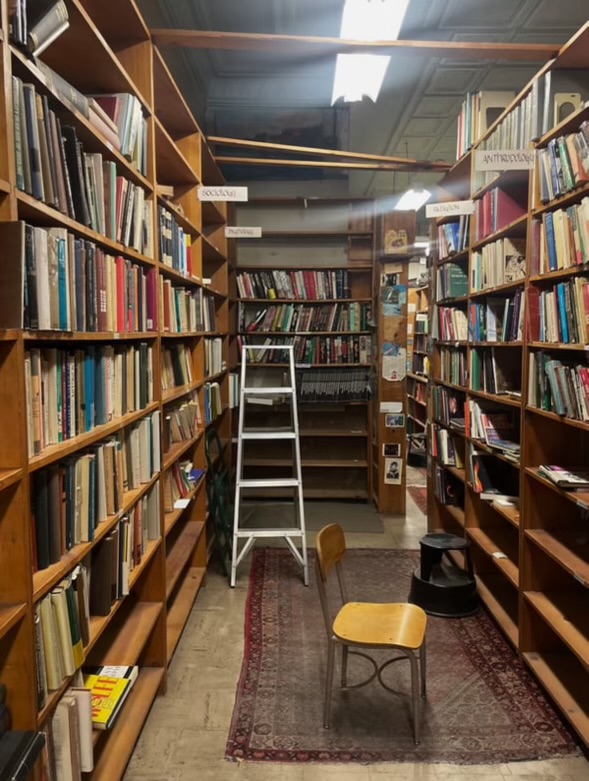The events of Sept. 11 deeply influenced life across the country and at UW-Madison. Despite the pervasive change, no new classes are being offered at UW, and long-term course content is relatively unaltered.
Many universities across the country have created new classes or overhauled the curriculum of existing courses to accommodate curiosity regarding Sept. 11. UW professors have brought the attacks into academia by altering individual assignments and daily lectures.
Professors have taken a variety of means to acknowledge the terrorist attacks in their classes, from ignoring them to making them the focus of their course material.
“I imagine most people have taken into account the events of Sept. 11,” said Hemant Shah, UW journalism and mass communications professor. “But how depends on the course.”
Some courses have no clear connection to the terrorist attacks. Others, however, have potential ties to the attacks, allowing professors to decide whether or not to incorporate the events into their classes.
Many have addressed terrorism issues when current events have related to their course material.
Alfred McCoy, UW history professor, devoted half of a “Vietnam Wars” lecture last semester to discussion on how the War on Terror related to the Vietnam War. He said Sept. 11 was on students’ minds, so he allowed the class to talk about their course material in a new context.
Shah used Sept. 11 in his first class this semester to emphasize the value of studying international communication.
He said the recent events proved the importance of understanding different cultures.
UW public affairs professor Charles Engel chose not to directly address the terrorist attacks in his public affairs graduate course, but used them as the context for a writing assignment about recent changes in U.S. trade policy.
While some have mentioned Sept. 11 in their classes, a few professors have based their course material on the events of the day.
Communication Arts Assistant Professor Susan Zaeske rearranged the material of her “Great Speakers and Speeches” course last semester to focus on speeches by President Bush and Osama bin Laden, as well as works by feminist organizations on the treatment of Afghan women.
This semester, Zaeske considered the terrorist attacks in choosing material for her “Classical Rhetorical Theory” course.
“One of the major themes is the role of rhetoric in inciting violence,” she said. “It’s not one of the themes I’ve usually done.”
Uli Schamiloglu, professor of Turkic and Central Eurasian studies, planned his Introduction to Central Asia course to include more information on the recent history of Afghanistan instead of some previously taught material on the medieval period.
Although Sept. 11 has been a presence in some classes, the purpose and structure of most courses have not changed. New courses related to the attacks or its aftermath have not been formed either.
Unlike some universities offering new courses in response to the terrorist attacks, UW officials say the university is not as flexible as some schools to quickly create new classes. Proposed courses must go through several steps before they are offered in the university timetable.
“It takes about a year to get a new course up,” McCoy said. “The university doesn’t pop up courses overnight.”
McCoy said some of the universities with new Sept. 11-related classes operate on a quarter system, whereas UW runs on a semester system. Schools on quarter systems are able to offer new courses more quickly than those on semester systems because classes change more frequently.
Engel said the nature of a course might also determine whether its content can be formatted to a current events topic.
“Where you’re likely to find these courses is where you have seminar courses that change from semester to semester,” he said.
UW offers seminar courses with flexible topics, but most are more rigidly constructed.
McCoy said the university is right in preventing drastic course changes. He said the university has the responsibility of providing foundation skills and information to help students long after the War on Terror ends.
Regardless of whether Sept. 11 is covered in class, students seem interested in the events.
“People want to talk about the current situation,” Zaeske said. “It’s obviously on their minds.”
Bruce Cronin, assistant professor of international relations, said student interest in broader issues related to Sept. 11 is evident in the increased enrollment in courses such as international relations, political science and history.
Schamiloglu said enrollment in his Central Asia class dramatically increased this semester.
“Last time I taught it the class had 45 [students],” he said. “Now it has 115.”
Some professors believe if strong student interest in the issues raised by Sept. 11 remains, the university may offer more related courses. Schamiloglu said students should continue to learn more about the issues, both inside and outside of class.
“I want my students to be better informed citizens since there is a war going on,” he said.







